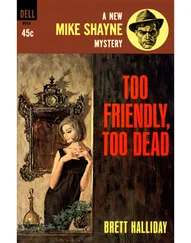Dan Fesperman - Lie in the Dark
Здесь есть возможность читать онлайн «Dan Fesperman - Lie in the Dark» весь текст электронной книги совершенно бесплатно (целиком полную версию без сокращений). В некоторых случаях можно слушать аудио, скачать через торрент в формате fb2 и присутствует краткое содержание. Жанр: Триллер, на английском языке. Описание произведения, (предисловие) а так же отзывы посетителей доступны на портале библиотеки ЛибКат.
- Название:Lie in the Dark
- Автор:
- Жанр:
- Год:неизвестен
- ISBN:нет данных
- Рейтинг книги:3 / 5. Голосов: 1
-
Избранное:Добавить в избранное
- Отзывы:
-
Ваша оценка:
- 60
- 1
- 2
- 3
- 4
- 5
Lie in the Dark: краткое содержание, описание и аннотация
Предлагаем к чтению аннотацию, описание, краткое содержание или предисловие (зависит от того, что написал сам автор книги «Lie in the Dark»). Если вы не нашли необходимую информацию о книге — напишите в комментариях, мы постараемся отыскать её.
Lie in the Dark — читать онлайн бесплатно полную книгу (весь текст) целиком
Ниже представлен текст книги, разбитый по страницам. Система сохранения места последней прочитанной страницы, позволяет с удобством читать онлайн бесплатно книгу «Lie in the Dark», без необходимости каждый раз заново искать на чём Вы остановились. Поставьте закладку, и сможете в любой момент перейти на страницу, на которой закончили чтение.
Интервал:
Закладка:
Vlado made the calls from the Jewish Community Center, at the old synagogue a few blocks away from police headquarters on the far side of the river. It had become a nerve center of sorts during the siege. Not only was it one of the strongest remaining links to the outside world, it was the only one not directly controlled by the government.
The center’s long-distance telephone service was a work of ingenuity. All lines leading out of the city had long since been cut, so a ham radio operator made the connection to the phone network in Zagreb, the capital city of neighboring Croatia, which then patched through calls to anywhere except Serbia or other parts of Bosnia. Serbia was taboo because it was still Croatia’s enemy. Bosnia was off limits simply because too many phone lines had been cut. You could call clear around the globe, but you couldn’t phone a few miles up the road to a town like Kiseljak or Pale.
Even if there was eavesdropping by the army, the people working in the radio room also couldn’t help but hear your call as they kept the connection open. Nor did you have much privacy from the others standing with you in line.
Unless the shelling was heavy, there was always a large daytime crowd at the center. On the first floor you could get a hot lunch of the standard beans, macaroni, rice, and bread. If you were bored you could find a card game, or chess, and there was a welcoming wave of heat from woodstoves and the rub and shuffle of people crowded around small tables.
The center also ran a mail service, sending and receiving by the truckload via the aid convoys that arrived at erratic intervals from the port city of Split on the Adriatic, a ten-hour journey across rough mountain roads that had been carved out of goat paths by British engineers for the U.N. The convoys were often delayed for weeks at a time, either by fighting or by paperwork at the Serb checkpoints at the entrances to the city.
The center also arranged some of the few evacuation convoys that still got out of the city every few months, always crammed full with women, children, and old folks. For men of fighting age, or those who held some technical skill deemed indispensable by the government, the only way out was up over the hills on your own, which required passage through two lines of opposing armies.
Vlado’s wife, Jasmina, and his daughter, Sonja, had left in one of the first of these convoys. They had survived shell and shot on the grinding ride out, eventually making their way from Croatia to Germany, well before the Germans decided they’d had enough and clamped down on their refugee and asylum laws.
As the man at the slaughterhouse had known all too well, Jasmina was now working for an architect, although not legally, earning wages and benefits far below the German standard. She and Sonja lived in a crumbling highrise. An old police friend of Vlado’s had arranged both the apartment and the job. He was an East German cop who’d survived the background checks after reunification to keep his job, though he was still stuck with his clunky Soviet-made Lada patrol car while his western colleagues worked in VW vans.
Vlado had met him on a trip to Berlin less than a year before the war, during a special training course. Imamovic had bent the rules and the budget to make sure Vlado got to attend, because it was a seminar on handling evidence and searching crime scenes, lessons he’d botched completely the other night as he stumbled around Vitas’s body in the dark.
Vlado’s memories from the trip were all he had to go on as he tried to imagine Jasmina’s new life. Berlin had been in turmoil then, only a few weeks before reunification. Mostly he recalled the women, so tall, almost spectral, and invariably in black clothes, as coldly grim as winter itself with their severe haircuts, heavy boots, and unsmiling faces. He recalled his rides on the S-Bahn, jostling commuter trains with doors that slid shut with a slam, legions of somber people shuffling on and off at every stop, ignoring the graffiti in their orderly but disheveled surroundings, angry messages in spray paint which demanded, AUS-LANDER RAUS! Foreigners Out.
His walk to the Jewish Center took only a few minutes, and by the time he arrived he’d mostly calmed himself. The less said about the encounter, the better. He wondered how much he should tell Damir. Perhaps he’d had a similar experience.
There was a crowd in front of the center, faces raised to scan a long list of names of people whose mail had arrived. He elbowed through and headed upstairs to the radio room.
Vlado’s monthly phone call was invariably slotted between the same two people-a lovesick young soldier in a ponytail who phoned his girlfriend in Vienna, and a stooped old woman phoning her grandson in Hungary. He always drove up from Belgrade to take her call, crossing the Serbian border into Hungary long enough for their brief chat plus an extended shopping trip for whiskey, gasoline, and cigarettes, which he could resell in Belgrade.
Vlado had come to know the faces of the other regulars, and they usually nodded and chatted while waiting in the hallway, but always without giving up too much of themselves, figuring that they already revealed enough in their phone conversations. Today it seemed especially comforting to see everyone in their places as usual, as if nothing had changed from the last time around.
Vlado had begun to daydream abundantly about Jasmina only a week after she left, and he soon found himself far more mindful of her than when they’d been together, preoccupied with the daily duties of keeping a home and raising a child. Suddenly cut off from those routines and left to face a war on his own, he pictured her often. In idle moments when he least expected it an image of her would stand before him, her long slender legs in black hose, disappearing up into a skirt. The moments crept up on him with a slow building tightness in his chest, and at night he would dream of them astride each other in frantic energy and motion, her face locked in a grimace of pleasure. Always in the aftermath, laying awake on the bed, he would imagine he could hear the slow, measured breathing of their daughter coming from across the hall, asleep in her crib, curled like a fetus beneath a soft yellow blanket.
The lovemaking in these dreams became far more passionate and frequent than it had been during their last year together, and he realized that this was how it should have been before. It had taken the first few weeks of separation to rediscover her as lover, as something more than the wife and mother she’d become. But as the weeks turned into months the dreams faltered, grew fuzzy at the edges. Often as not the face before him on the bed was now borrowed from some woman he’d passed in the street that day, one of the improbably well-groomed women you saw everywhere in the city, in their crisply ironed skirts and dark lipstick, every hair in place.
Two months ago Vlado had clumsily tried to break the cycle by buying a prostitute one night after work. He’d made sure he was the last to leave the office, then walked two blocks to the sandbagged alley outside the side entrance to the French garrison. In the glow of a U.N. security lamp he’d evaluated the prospects-three women standing limp and slack in oversized coats. Two had angled a leg forward, showing long legs in nylons and no hint of where any skirt might begin. The third had tried to smile. Then, belatedly noticing her colleagues, she, too, had slipped a thigh forward from beneath her overcoat.
Vlado had chosen her, as much for her lack of professional polish as anything else. Ever the bad bargainer, he quickly settled on a price of six packs of Marlboros, to be paid from a carton he’d received the week before from a U.N. official. He then took her back to his building and up the stairs to the office, hoping no one had by chance returned.
Читать дальшеИнтервал:
Закладка:
Похожие книги на «Lie in the Dark»
Представляем Вашему вниманию похожие книги на «Lie in the Dark» списком для выбора. Мы отобрали схожую по названию и смыслу литературу в надежде предоставить читателям больше вариантов отыскать новые, интересные, ещё непрочитанные произведения.
Обсуждение, отзывы о книге «Lie in the Dark» и просто собственные мнения читателей. Оставьте ваши комментарии, напишите, что Вы думаете о произведении, его смысле или главных героях. Укажите что конкретно понравилось, а что нет, и почему Вы так считаете.












